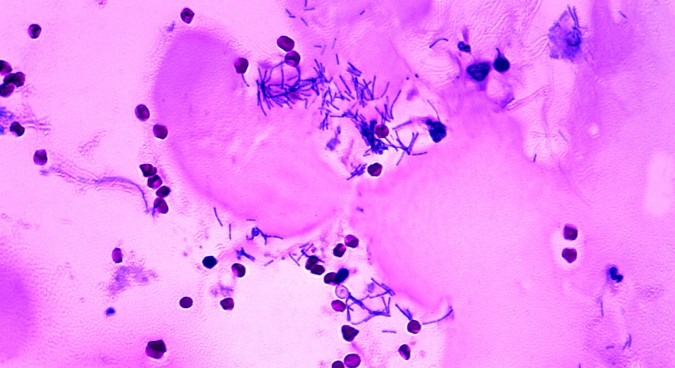
N.Korea criticizes anthrax experiment by USFK
U.S.-ROK reveals investigation result on anthrax delivery: 15 times of anthrax entry since 2009
Pyongyang’s state-run Rodong Sinmun newspaper on Monday criticized use of anthrax in South Korea, which was revealed by a joint ROK-U.S. joint working group’s (JWG) investigation last Thursday.
Repeating its allegations of biological warfare during the Korean War, the newspaper blamed the U.S. for the “criminal activity.”
It also criticized Seoul’s position.
“Conducting biological weapons experiments randomly, with anthrax and plague targeting its own people, is it fine for cooperation with the U.S., and putting its residents in danger?” it said.
United States Forces Korea (USFK) delivered 15 anthrax test samples to South Korea between 2009 and 2014, according to the joint report.
It was previously only known that active anthrax was delivered to Osan Air Base in May this year, with two experiments performed on the sample on May 21 and 26.
“The ROK government agencies during an on-site visit yielded negative results for Bacillus anthracis spores at the Osan facility,” the JWG press release reads.
The JWG said that USFK also imported inactive samples of other infectious diseases for training, though it added that the deliveries were “routine national defense activities,” also conducted in other countries with U.S. military bases.
The program, entitled JUPITR, is composed of “biological equipment testing” and “proficiency training.”
“The testing includes usage of facilities and equipment, and training is for operators, how to deal with facilities in order to detect and identify the virus,” an MND official told NK News.
Current regulations do not require the USFK to notify the South Korean government about the delivery of inactive samples, and the MND said in its report to the National Assembly on Thursday that they were not aware of the shipments.
Recommendations from the JWG include the addition of a notification process with specific information on shipping, the recipients and details on the sample’s type, purpose and quantity.
However, Shim Jae-kwon, a lawmaker from the New Politics Alliance for Democracy party, pointed out the recommendation’s lack of enforcement, compared to that of other countries like Germany.
“German law mandates an independent investigation by German custom authorities at a designated place agreed upon by the two parties,” the statement from Shim’s office reads.
The statement also called for informing the South Korean government of the specific contents of the program, which deal with 15 kinds of hazardous materials.
According to the MND’s press release, no further samples will be delivered to South Korea until the relevant procedures have been improved.
Seoul’s Defense Ministry said North Korea was capable of carrying out biological attacks, as it likely possesses 13 types of biological agents including anthrax and other infectious diseases.
The Rodong Sinmun, however, denied this, calling it a falsehood motivated by a plan to attack North Korea in an emergency.
Featured Image: Anthrax infection by kat m research on 2009-03-08 11:31:44

No comments:
Post a Comment